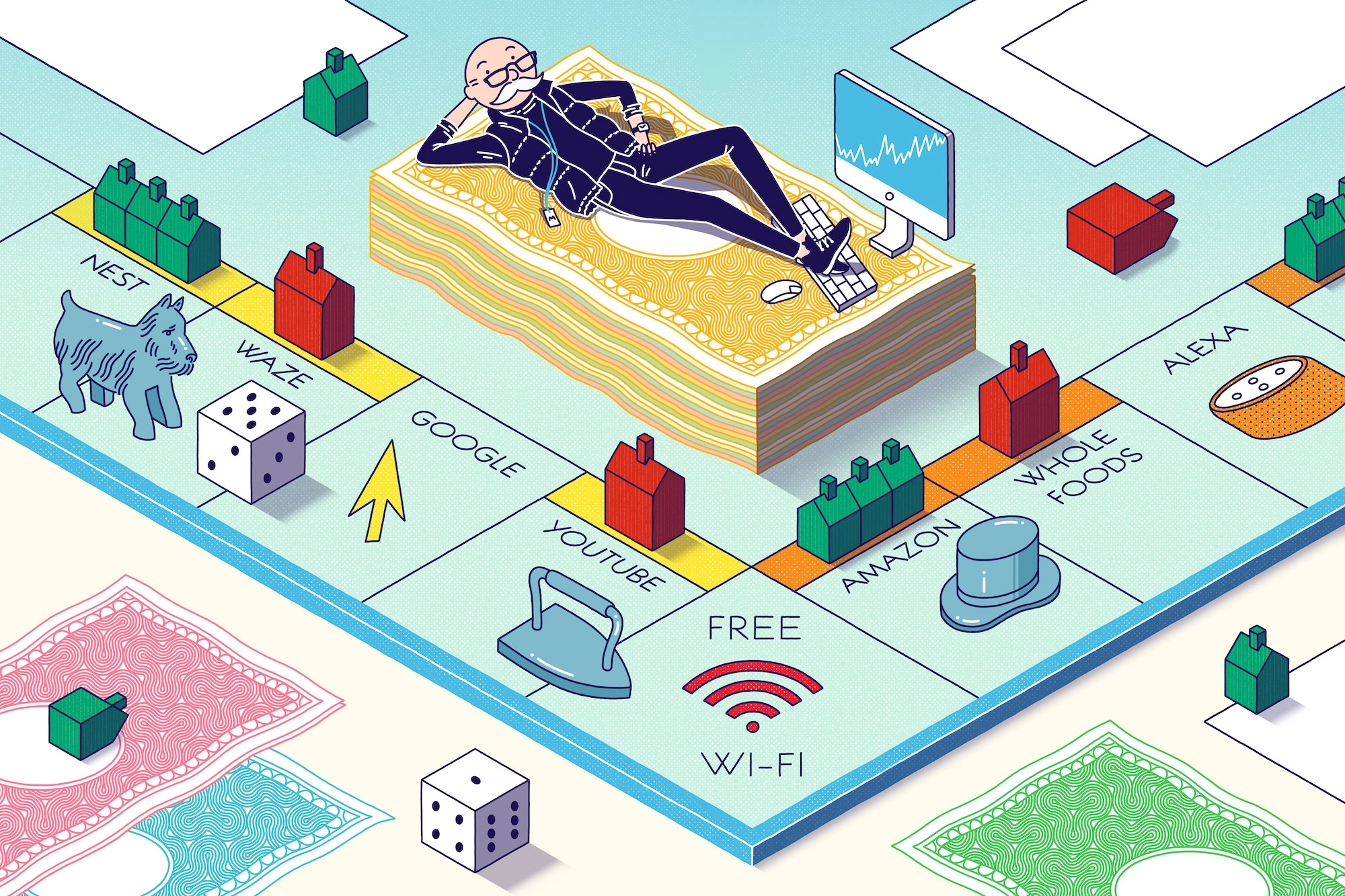Dr. Per Bylund: Monopoly Power: What Should We Fear?
Introduction:
Overall, Dr. Per Bylund provides an educational and thought-provoking perspective about what is truly to fear about monopoly power. As someone with a limited knowledge in respect to economics, I appreciate that he provides an easy-to-understand speech with real world examples that everyone is familiar with. This ultimately allowed me to grasp his perspective, agree with his stance, and think of other applications of this idea.
Thoughts on Dr. Bylund’s Stance on Monopolies:
I found myself strongly agreeing with Dr. Per Bylund’s overarching opinions throughout this speech. Dr. Bylund’s stance is that monopolies are not dangerous if they are the most successful company within an area, but rather they are dangerous if they are the only company allowed to compete in said area. This inherently makes a lot of sense to me, but this key difference in monopolies is something I had never stopped and thought about before. As Dr. Bylund mentions, when there is no competition than the seller has more power. I previously would have considered a monopoly to be a business with little to no competition, but I now realize that in reality, even extremely successful businesses (near-monopolies) and monopolies always have competition. As long as other companies are allowed to exist in that same industry, then the door is always open for another company to rise above a monopoly, even if it seems unlikely.
A good example of how prohibited competition creates monopolies that are actually too powerful is utilities. This was an example mentioned by Dr. Bylund; however, I just recently witnessed this example in action. A coworker of mine received an electric bill recently that was several hundred dollars more than her typical bill, so she thought there must be some kind of mistake as she was not notified of any change in the pricing. When she called to inquire about the billing issue, she was simply told there was no issue and no one would help her understand why the price was increased. In the end, she just had to pay it and now lives not knowing what to expect from her electric bill next month. This demonstrates in the real world how monopolies that fall within Dr. Bylund’s guidelines for a truly overpowerful monopoly can simply upcharge their customers and provide poor customer service because no other company is allowed to compete with them. This is ultimately an abuse of power. Within my example, it is possible that the price increase was reasonable and a result of their power usage, but my point is that due to the lack of allowed competition, the company had no regard for how they treated the customer.
How Monopolies Influence Innovation
In the previously mentioned example, it was mentioned that even when no one can directly compete with a monopoly, like utility companies, innovators are pushed to find loopholes, such as using solar panels on top of their house. I found this concept to be really interesting, particularly because it made me wonder what other innovations could be made to kind of indirectly compete with other existing monopolies. Dr. Bylund mentions how healthcare could be considered one of these monopolies, which reminded me of an emerging idea in the healthcare system: concierge medicine.
The concierge medical model is a rising idea in the healthcare field that is attempting to cut insurance out of the equation. Within this model, which currently mainly exists in the primary care setting, patients pay a monthly or yearly rate, completely outside of insurance, that allows them to have their provider on a retainer and make unlimited appointments or telehealth calls. Throughout this process, there are no deductibles or copays, and many testify that the care received when medical staff is not jumping through insurance hoops and managing an unrealistic patient load is significantly worth it. This monthly or yearly cost can be quite expensive, so although it is not currently a great option for healthcare as a whole, I think it is a very interesting concept that introduces a new level of competition in healthcare. As Dr. Bylund mentions, we could be missing out on innovations in healthcare due to regulations, so I think any system that provides more avenues for innovation and competition are worth exploring. However, the current downsides to this model are that it has not/might never apply to all specialties and currently people usually need to keep paying for health insurance on top of their concierge fee in case of any surgeries or hospitalizations. Regardless, I think this model shows one way that we are creating a new opportunities for innovation and I am interested to see where it goes throughout my lifetime.
Conclusion:
All in all, I think Dr. Bylund makes some great points that I enjoyed and agree with. The overarching message I got from this speech was that the time to fear monopolies is when they are offering something people really need that few others are allowed to sell and there is no one competing with them. As I am generally uneducated in economics, I would like to hear the prospective of those who disapprove of all forms of monopoly as this speech did not provide a well-rounded view; however, I agreed with Dr. Bylund that the only true dangerous monopolies are the ones that are not allowed to have competitors. I look forward to exploring and seeing how innovators continue to break into fields dominated by overpowered monopolies.
